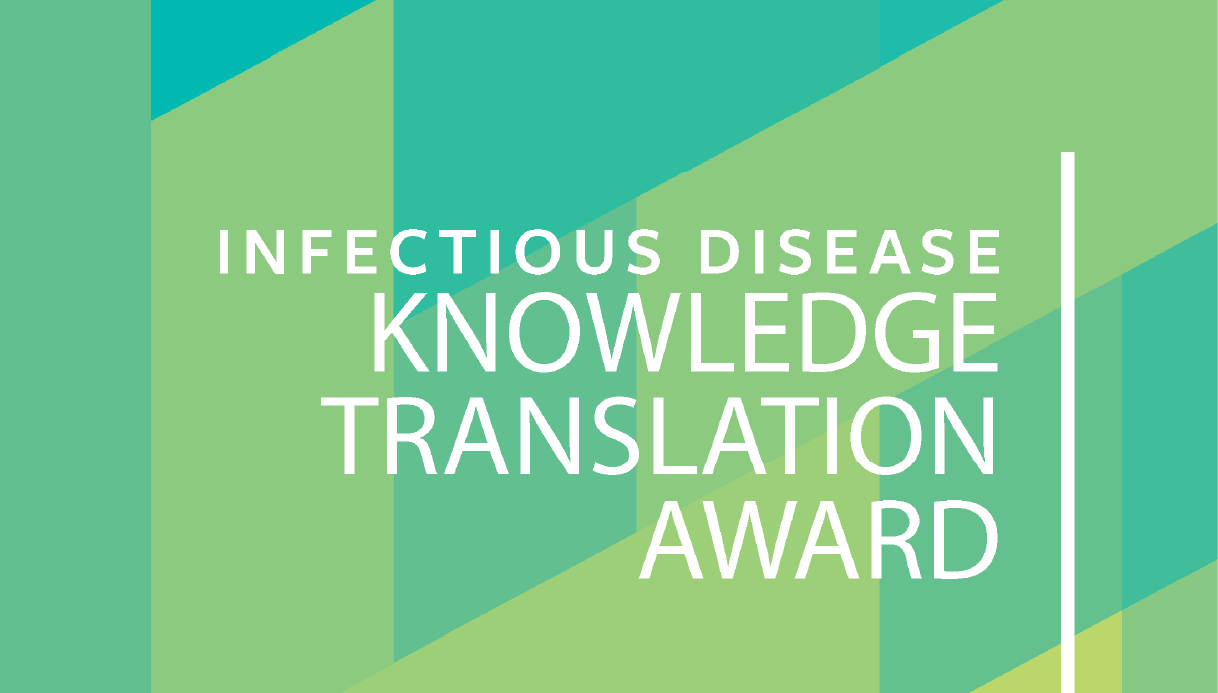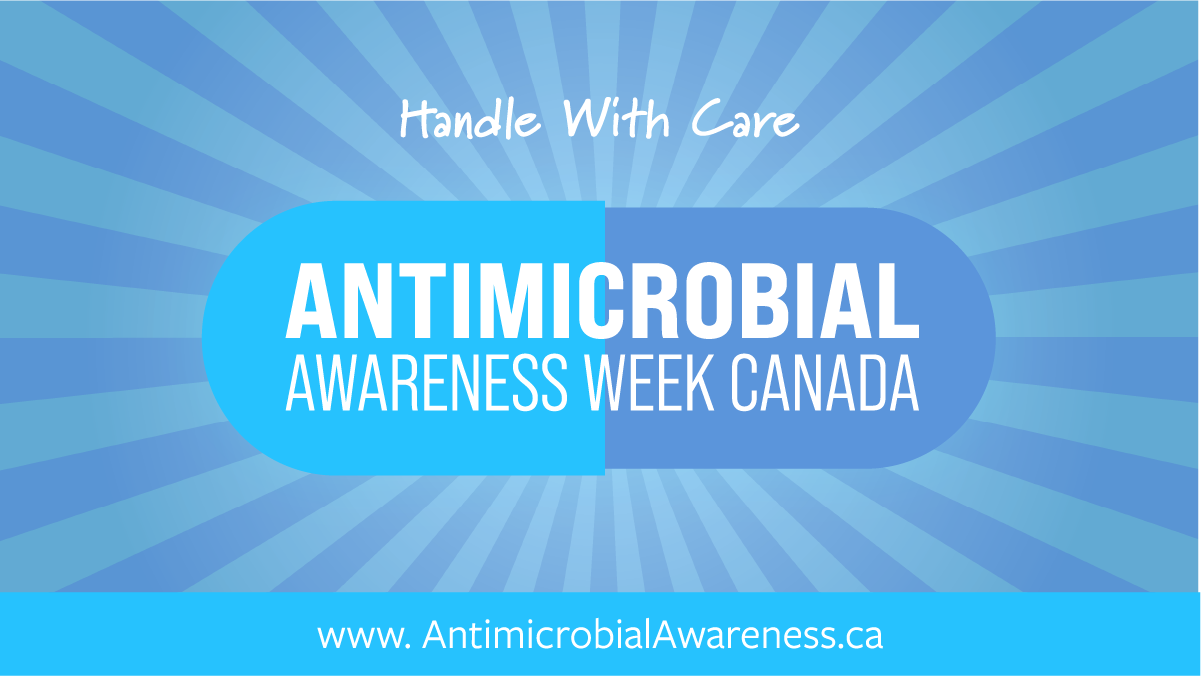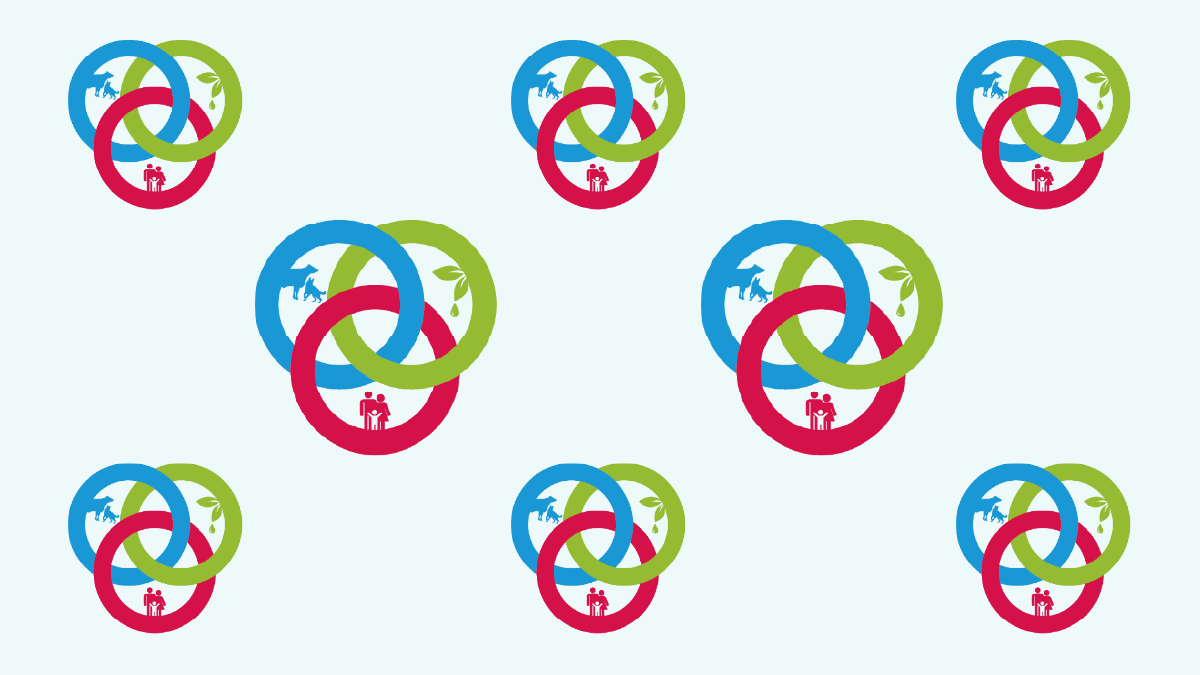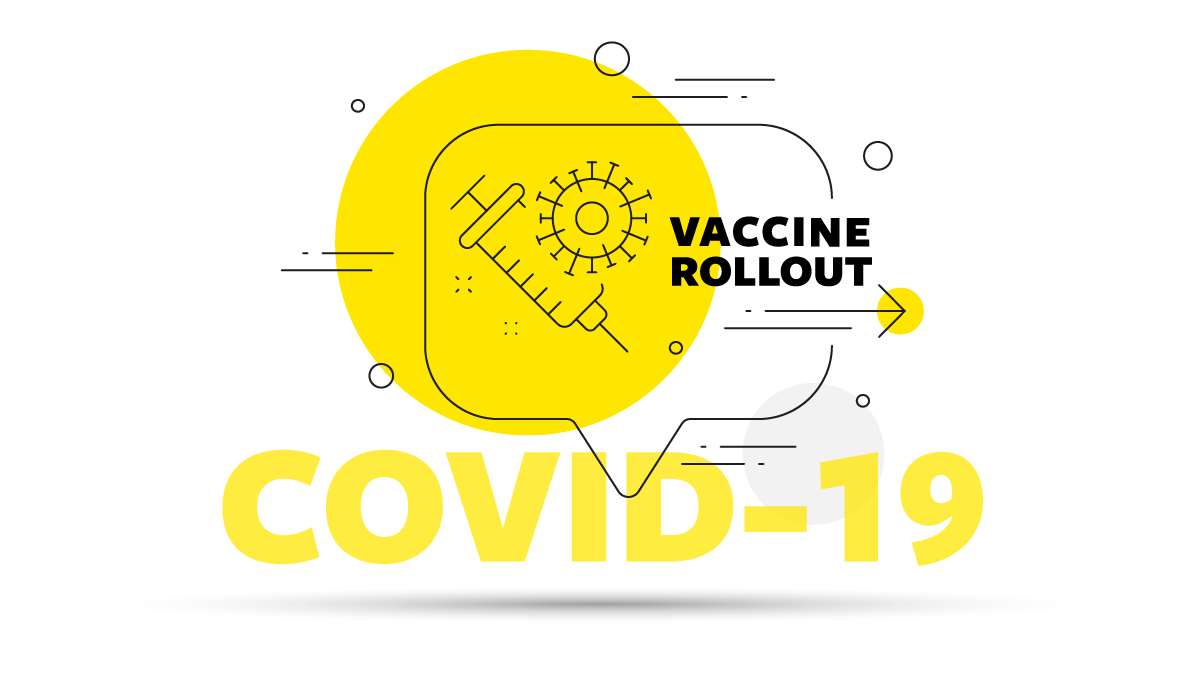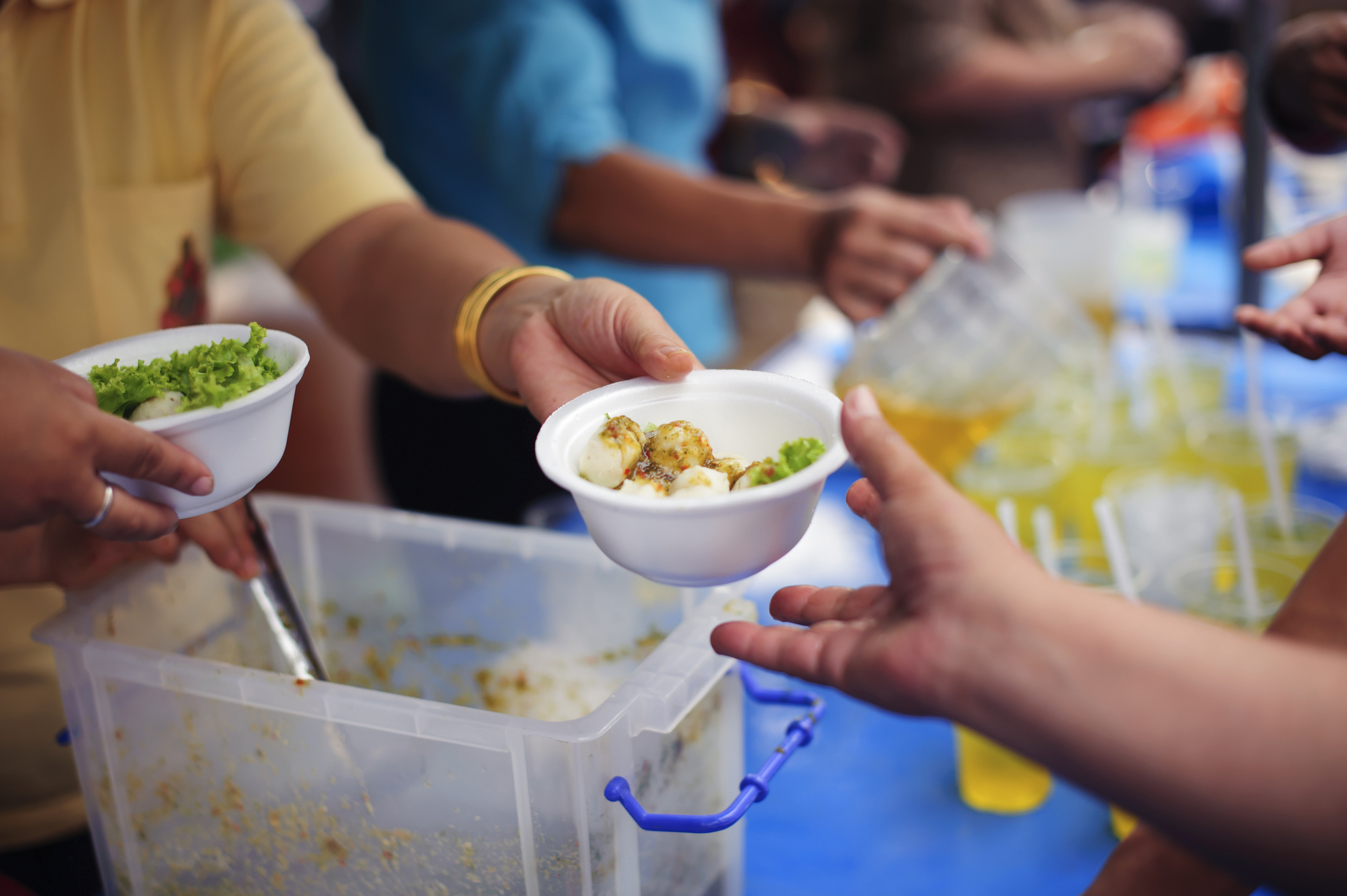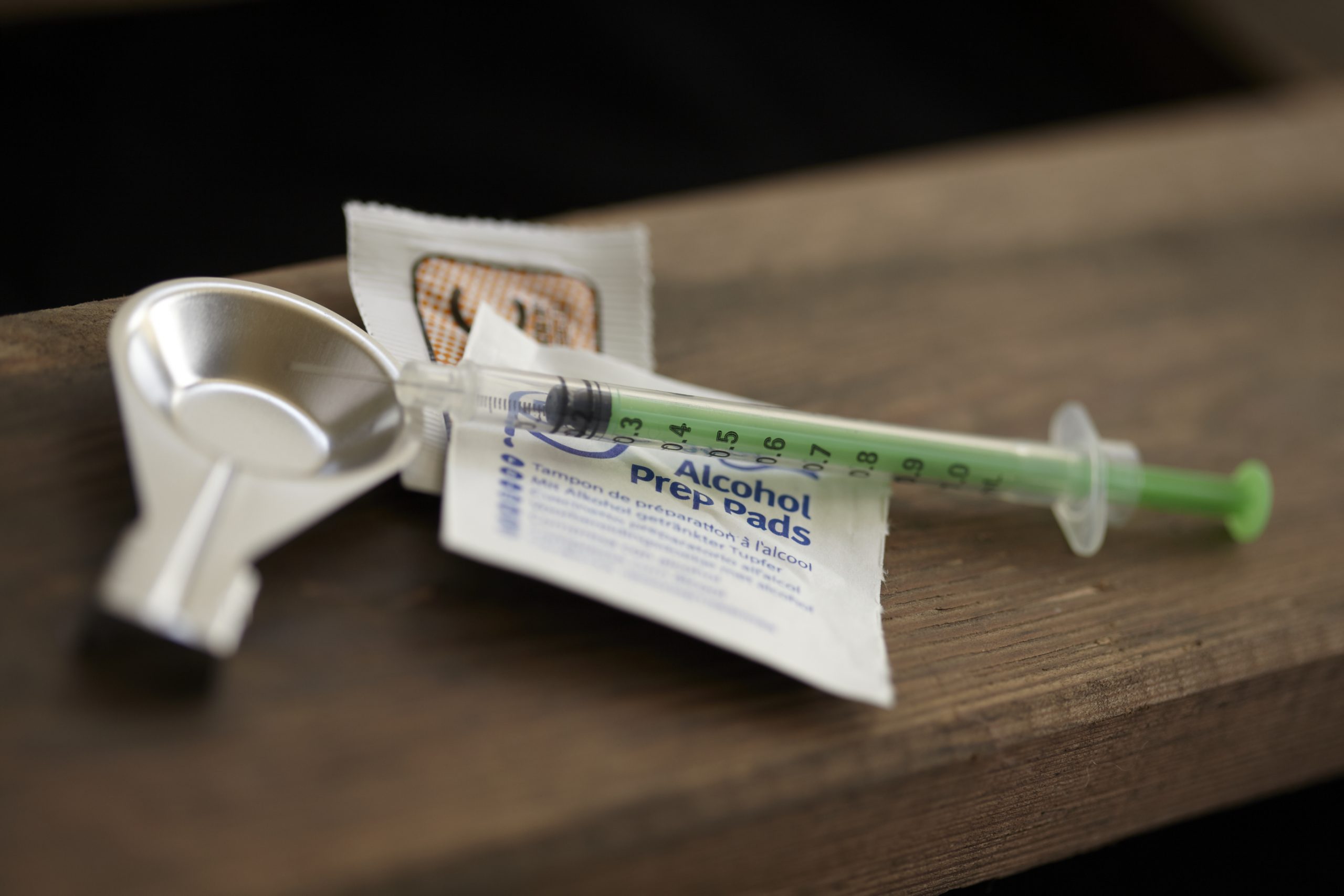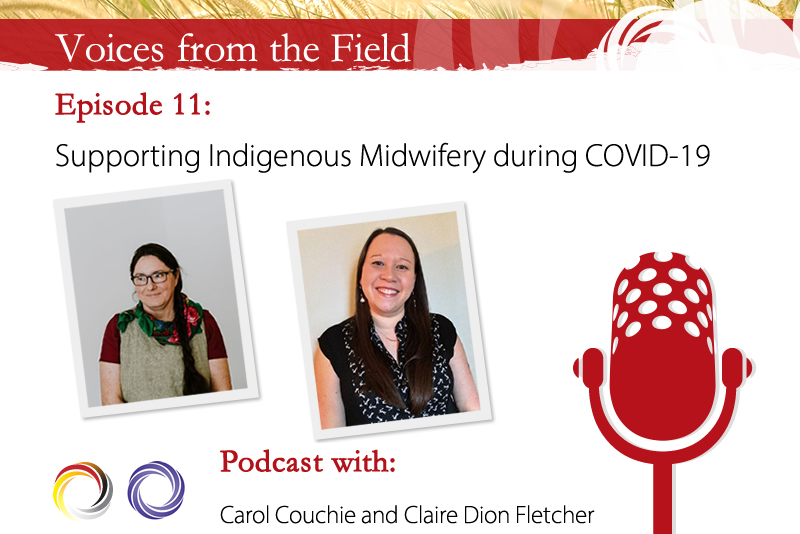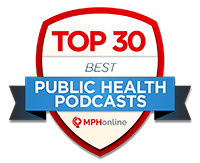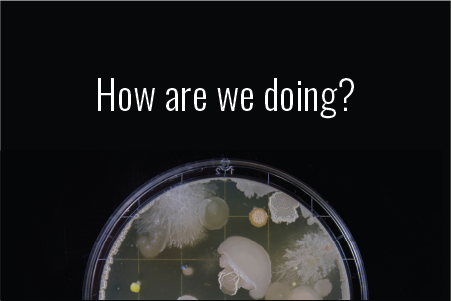NCCID and CFID offer the Infectious Diseases Knowledge Translation Award to encourage student involvement in knowledge translation and health promotion on preventing and controlling infectious diseases. Applications accepted until January 13, 2023
Antimicrobial Awareness Week (formerly Antibiotic Awareness Week), November 18 – 24, promotes informed, careful use of these life-saving medicines to help keep them working for future generations.
Canadian buildings and landmarks are sparking up in light blue on Thursday, November 24th, to mark the close of World Antimicrobial Awareness Week. The World Health Organization (WHO) has declared antimicrobial resistance (AMR) as one of the top 10 global health threats.
The report summarizes the key concepts of each presentation and discussion panel, from the One Health Antimicrobial Stewardship Conference, hosted by the ABVMA March 10-12, 2021.
The Coronavirus disease (COVID-19) is a global pandemic as announced by World Health Organization (WHO, March 11th 2020). It is caused by SARS-COV-2 coronavirus, a virus strain never previously identified in humans. As of Jan.11, 2021, COVID-19 has infected 90.9 million people, and caused the death of 1.95 million people globally. In Canada, 672,931 people…
NCCID has assembled a glossary of terms related to regulatory processes for ensuring the safety and efficacy of drug therapies, including new drugs and new therapeutic applications for existing drugs. The aim is to increase understanding of these terms and transparency on related policies that protect Canadians.
NCCID has created two infographics for shelters and other congregate settings. The first two documents describe personal health protection and the other answers five questions on COVID-19 testing. The information comes from medical officers of health in Nova Scotia. Resources
NCCID has curated a list of substance use harm-reduction resources. They provide relevant substance use information that aims to increase access to harm reduction supplies and programming to support people who are using substances and prevent sexually transmitted and blood-borne infections and other harmful outcomes. NCCID has also put together the following list of sexually…
UPB News Agency – Medellín (COL). Researchers from the Pontificial Bolivarian University (UPB), with officials from the Health Secretariat of Medellín, review modeling scenarios weekly to adjust the actions and plans of the city, in relation to the pandemic. This group, led by Dr. Zulma Rueda, PhD in Epidemiology, has been actively working with researchers…
NCCID joined the National Collaborating Centre for Indigenous Health (NCCIH) to produce a podcast episode focused on Indigenous Midwifery during COVID-19. The episode, a conversation with Carol Couchie and Claire Dion Fletcher, co-chairs of NACM, discusses how COVID-19 has impacted indigenous midwifery. Topics include: Recommendations for maternity and out-of-hospital care, Patient relationships and social distancing,…
NCCID continues to contribute resources for public health practitioners during the current COVID-19 pandemic. We’re excited and grateful that MPH Online has ranked Infectious Questions in their top 30 public health podcasts of 2020. As we continue producing episodes of Infectious Questions during this challenging time for public health, we understand the massive physical and…
Antimicrobial resistance (AMR) is a recognized global public health threat. Integrated, One Health based surveillance of AMR and antimicrobial use (AMU) must underpin efforts to protect human, animal, and crop health. In 2014, the National Collaborating Centre for Infectious Diseases (NCCID) published a report assessing AMR/AMU surveillance in Canada along with recommendations to address gaps…

